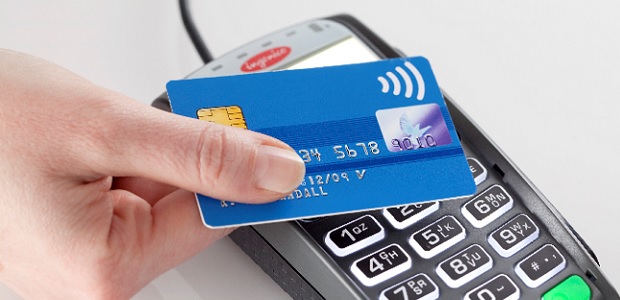
The British Retail Consortium (BRC) has launched its latest Payment Survey showing card use continuing to rise steadily from 54% of transactions in 2016 to 61% in 2019. This trend has accelerated under coronavirus, which lead to more customers shopping online or paying by card in store.
At the same time, the cost to retailers of accepting payments reached £1.1 billion in 2019, of which £950m was from card payments. While card payments account for 4 in every 5 pounds spent in retail, they also incur the largest charges with shops charged an average of 18.4p per credit card transaction (up 15% from 2016), and 5.9p for every debit card transaction (up 6% from 2016). Furthermore, businesses have received notices in the past year of new fees that will now be charged to accept payments online.
„At a time when retailers are facing increasing costs due to coronavirus and Brexit, the increasing scheme fees place further pressures on retailers. Ultimately these costs, equivalent to £40 per household, will be reflected in consumer prices,” according to the press release.
The British Retail Consortium, British Independent Retailers Association, Association of Convenience Stores, Federation of Small Business and UKHospitality have come together to call for decisive action to tackle increasing scheme fees, protecting Britain’s businesses and consumers from excessive card costs which add to the price of goods and services.
The calls come amidst a series of reviews underway by government and the UK’s Payment System Regulator, with a Treasury consultation on the payments landscape closing today. Organisations are also calling for further measures to protect consumers’ access to cash, which remains an important method of payment, particularly for many vulnerable people.
Andrew Cregan, Head of Finance Policy, British Retail Consortium said:
“With card payments accounting for almost 80% of retail sales, it is vital that the Government takes action to tackle excessive card costs. Without action we will see businesses put under further pressure and it will be consumers who are forced to pay the price.”
Jeff Moody, Commercial Director, British Independent Retailers Association said:“The contracts available to large national chains are often not available to individual smaller independent retailers, with card transactions now the majority of their payment transactions, these costs are therefore being felt by consumers.”
James Lowman, Chief Executive, Association of Convenience Stores said: “The way that customers pay in convenience stores is continuing to diversify and the costs that must be met by retailers to provide these options are rising. Recent years have seen the financing of ATMs undermined, causing many machines to become fee-charging regardless of retailer preferences, and some parts of card fees double for retailers.
“There are two priorities for retailers here: everyone would benefit from a restored national network supplying access to cash, and action is needed to allow retailers to effectively find the best deal and switch card payments providers.”
Martin McTague, National Policy and Advocacy Vice Chairman, Federation of Small Businesses and member of Access to Cash Pilots Board said:
“The costs that accompany acceptance of card payments represent yet another overhead for embattled small retailers. We urgently need to see moves to make card terminals more affordable, improve connectivity so all firms can install them, and upskill business owners so they are confident in taking contactless payments – undoubtedly the safest way to pay in this climate. We also have to protect access to cash for as long as consumers want and need it. Achieving that aim will require creative solutions from ATM providers, substantial investment in the Post Office and more freedom around in-store withdrawals. Let’s not forget that cash serves both as an important back-up for when card systems fail and a competitor to the handful of providers that dominate the card payment market.”
David Sheen, Public Affairs Director, UKHospitality said:
“The events of the last few months have accelerated a move towards the use of card payments across hospitality, with many now not accepting cash on safety grounds. The sector needs to be protected from excessive fees for doing the right thing.”
Banking 4.0 – „how was the experience for you”
„So many people are coming here to Bucharest, people that I see and interact on linkedin and now I get the change to meet them in person. It was like being to the Football World Cup but this was the World Cup on linkedin in payments and open banking.”
Many more interesting quotes in the video below: